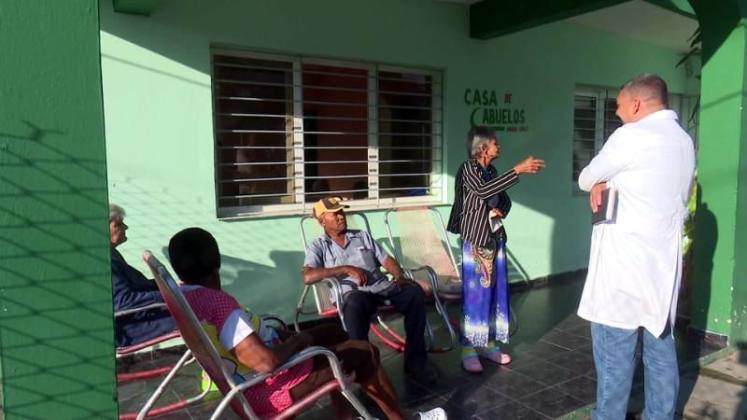
Older adults living alone, individuals with disabilities, the mentally ill and persons with chronic diseases, mothers of young children, pregnant women, vulnerable families… all have received special support from the Prevention, Assistance and Social Work Department of the Ministry of Labor and Social Security (MTSS), during these difficult times.
Among measures adopted, to address COVID-19, were the provision of differentiated attention by social workers for the most at-risk households and the granting of temporary monetary social assistance benefits to this segment of the population.
Toward this end, Belkis Delgado Cáceres, the ministry’s director of Prevention, Assistance and Social Work, reported that municipal directors of Labor departments and City Councils were authorized to expedite the approval process for such benefits.
She likewise reported that social workers have been “permanently linked” to commercial food service providers contracted by Family Care Services (SAF), since home delivery has been expanded over these three months, with individuals who did not previously need the service added, to ensure access to prepared meals.
Social Protection Centers serving individuals found living on the streets, including temporary sites added across the country given the health emergency, have a total of 71 social workers on hand to provide support, while 21 work in isolation centers for persons who have been exposed to the new coronavirus.
Decentralizing Social Assistance procedures and transferring authority to local bodies, has been “positive,” Delgado stated, “Since this is where the problem and the budget are located, and the exceptional circumstances can be analyzed.”
“We have ensured that home delivery for basic services has been maintained, in a country with 21% of our population being older adults,” she added.
THE BUDGET RESPONDS
During an exceptional situation like the battle against COVID-19, when many were obliged to stay home to protect their health, or care for other family members, some households saw their income sharply reduced, but no one was left to their own devices.
“In these three months (March, April and May) there was a modest increase of 2,155 families requiring protection, which was to be expected, since more people have been supported who were not previously vulnerable, but now need help,” Delgado stated.
From March through the month of May, 1,700,000 pesos were allocated to households in need of support, as monetary benefits from Social Assistance or subsidies from Family Services.
During this period, municipal councils and provincial governments approved the delivery of resources to more than 1,600 persons, involving over three million pesos, funding that covered the delivery of essential items, including clothing, footwear, lingerie, furniture, kitchen utensils, mattresses and appliances, among others.
In the post-COVID-19 recovery period’s three phases, Social Assistance will maintain protection for vulnerable groups. “The next step is to maintain this protection until there the population’s economic situation has been normalized,” Delgado said.
“This exceptional effort is being made, even though efforts to tighten the U.S. government’s economic blockade of Cuba have not ceased.”
In figures:
-36 measures were adopted to address labor, wage and social security issues generated by the pandemic
-77,180 workers have benefitted from wage guarantees
-78,301 mothers and fathers with children in primary education have benefitted from wage and labor protection, while 10,955 children have attended early childhood day care centers
-8,776 at-risk workers isolated in their homes, as mandated by health authorities, benefitted from salary protection measures
-71,409 older adults provided differentiated support (over 60 and those in poor health)
-243,308 self-employed persons benefitted from temporary tax exemptions
Source: Granma






